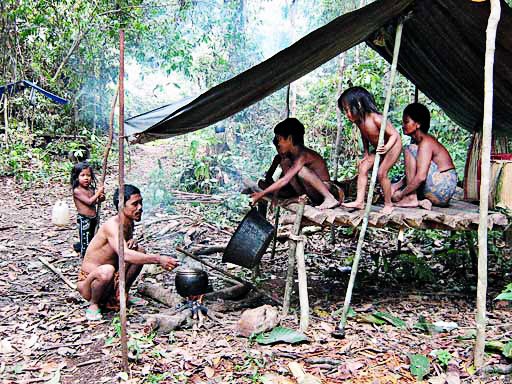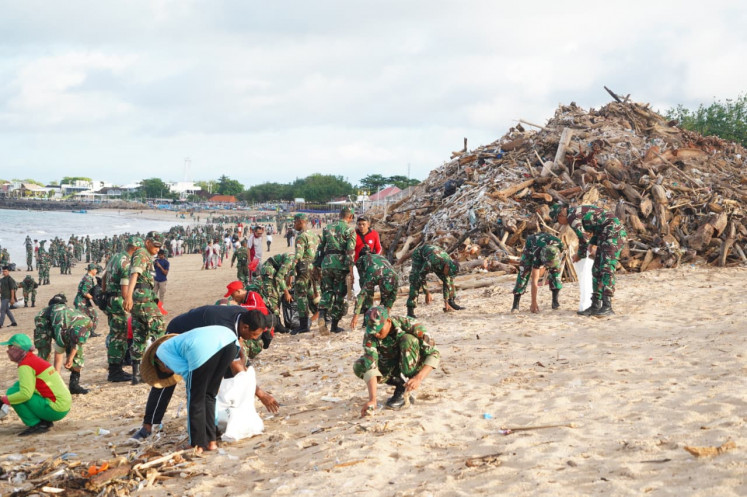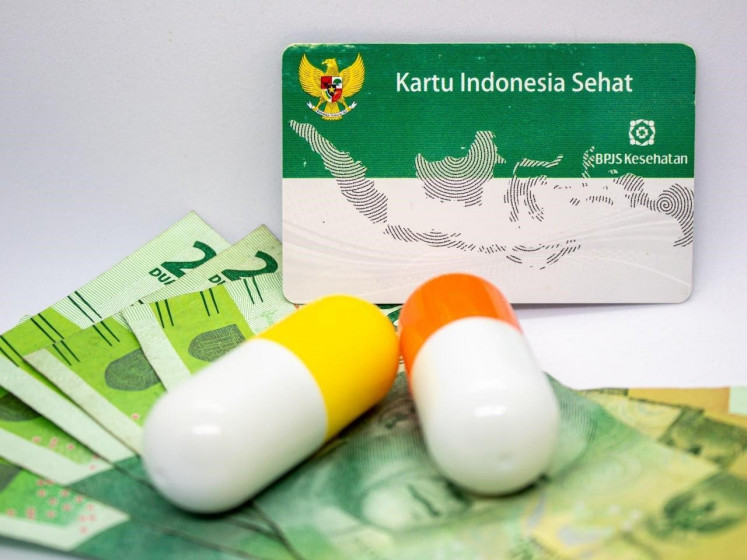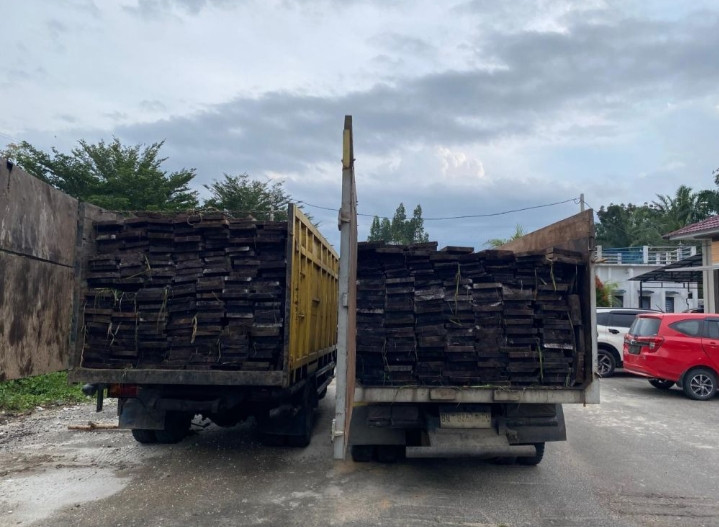Popular Reads
Top Results
Can't find what you're looking for?
View all search resultsPopular Reads
Top Results
Can't find what you're looking for?
View all search resultsMinistry to design affirmative action policy for Jambi indigenous tribe
Greater efforts are needed to integrate the Anak Dalam tribespeople into the larger society, as villages have limited budget.
Change text size
Gift Premium Articles
to Anyone
 On the edge: A family of the Orang Rimba tribe lives in a flimsy hut deep in the jungle of Jambi. The Indigenous People’s Alliance of the Archipelago (AMAN) said indigenous people in Indonesia have often suffered discrimination and human rights violations by the government, especially in cases of land disputes.
.
(thejakartapost.com/Iman D.Nugroho)
On the edge: A family of the Orang Rimba tribe lives in a flimsy hut deep in the jungle of Jambi. The Indigenous People’s Alliance of the Archipelago (AMAN) said indigenous people in Indonesia have often suffered discrimination and human rights violations by the government, especially in cases of land disputes.
.
(thejakartapost.com/Iman D.Nugroho)
T
he Villages and Regional Development Ministry will develop an affirmative action policy for the indigenous Anak Dalam tribe in Merangin regency, Jambi, to ensure inclusive regional development in the province.
The ministry’s expert staff for development and community Bito Wikantosa said that there should be a joint effort to integrate these indigenous people into the regional development.
“[A] community empowerment program is already ongoing, but we still need collaboration and support together,” Bito told a workshop in Merangin regency on Thursday, as reported by Antara news agency.
He said that empowerment workshops for the Orang Rimba, which means “forest people” and is another name for the Anak Dalam tribe, such as the one conducted by the Information and Conservation Stall (Warsi) in Merangin regency was a form of good practice, not only facilitating the Orang Rimba, but also facilitating villages to take part in empowering the tribespeople.
“This pattern should be strengthened through support from the central government and regional administration,” Bito said.
Bito expected the workshop to reach several important agreements, particularly the understanding that the Orang Rimba in Merangin regency are a marginalized group which must receive support from the government. Therefore, an affirmative action policy was needed, he added.
The workshop agreed to establish an affirmative action policy-making team involving multiple stakeholders and establish a coordination forum for various regency agencies and civil society.
The Orang Rimba are one of the marginal indigenous groups who live in a traditional manner inside the forests of Jambi. They suffer from being marginalized even further by dwindling forest areas due to forest conversion, leading to a loss of living space.
The tribespeople face complex challenges from fulfilling basic needs such as education and health services to their rights over land and access to natural resources.
The community has tried to adapt, with some groups changing their semi-nomadic way of life to one more settled.
The transition has not been smooth due to a lack of skills to adapt to a modern social-economic system in the larger society and the existence of strong social stigma against the Anak Dalam community within the society.
Tumenggung Ngilo, the leader of the Orang Rimba people who live in Pauh Menang village, Pemenang district, hopes that their group could receive support from all parties.
Several villages in Merangin regency have embraced and hosted the Anak Dalam people, providing them with space to integrate socially within the society.
Pelakar Jaya village head, Ayep, said that there had been efforts to integrate the tribe into the village development.
Pelakar Jaya village and other villages hosting Anak Dalam attempt to fulfill their basic needs, providing skills training and access to health services. However, budget limitations hinder the sustainability of these initiatives.
The workshop also acknowledged the need for support from various stakeholders, such as the regency administration, the private sector and civil society. The affirmative action policy also needs special budget allocation from the Merangin regency administration all the way up to the central government.
Meanwhile, non-profit organization Indonesian Conservation Community Warsi (KKI-Warsi) program manager Robert Aritonang welcomed the idea of affirmative action for the Anak Dalam community.
“We hope that the affirmative action policy will support a service system that works to serve the basic needs of the Orang Rimba, because if they are not included in this general system, [it could] endanger them or others,” he said.
“For example, Orang Rimba taking crops belonging to residents, begging and other actions that are generally viewed as criminal acts.”
Merangin Regency Secretary, Fajarman, said that the affirmative action policy was also a form of appreciation for villages that have supported the empowerment of the Anak Dalam community.
“We hope that the affirmative action policy can create various programs that will suit their needs, including increasing access to education, health and economic empowerment that can improve the quality of life of the Anak Dalam community,” said Fajarman.










